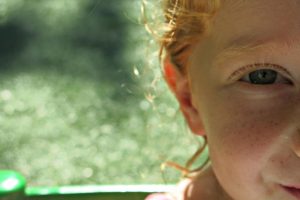
Cosas que no deberías obligar a hacer a tus hijos
Los padres tenemos un afán exagerado por obligar a los niños a hacer cosas: dar besos, ser simpáticos, compartir, comer o dejar de comer, etc.
¿Por qué? Porque es lo que hemos visto desde pequeños y muchas veces vamos con nuestro automático sin pensar en qué estamos enseñando.
Cuando éramos niños, nuestros padres nos obligaban a hacer muchas cosas que no nos gustaban, pero las hacíamos porque “siempre hay que hacer caso a los mayores”.
Tenemos la idea de que los padres tienen potestad absoluta sobre los hijos porque, claro, los padres son adultos y los hijos son niños.
Pero, ¿no crees que hay ciertas cosas que no deberían imponerse a los niños? ¿Que ellos son lo suficientemente “listos” para decidir por ellos mismos?
En el artículo de hoy, cinco directoras de Froggies comparten contigo tres cosas que nunca obligan a hacer a sus hijos. Descúbrelas y piensa si tú obligas a los tuyos a hacerlas.
Las directoras de las ciudades de Froggies nos cuentan qué cosas no obligan a hacer a sus hijos
Cristina Saraldi, directora general y alma de Froggies

– No obligaría a nada a los niños. Creo que la palabra obligar ya de por sí no es respetuosa. Creo que no deberíamos obligarnos a nada.
Sin embargo sí que creo que hay que invitar, proponer, explicar, hacernos ver, poner límites, hablar de nuestras necesidades y deseos, de cómo nos sentimos…
– Dar besos. Es un tema que realmente me preocupa. No es no.
Creo que parte también de una reflexión de las bromas que gastamos a los niños y cómo, cuando oímos la palabra “no”, a veces no hacemos caso, aunque se estén riendo (la risa es una herramienta más, no un signo claro de algo bueno).
– La comida es otro temazo. Cómo nos empeñamos en definir nosotros qué cantidades comen los niños y a qué hora. Creo que nos debemos relajar con los horarios y las medidas, y escuchar más a los niños, tanto en la alimentación como en mucho más.
Te animamos a que escuches esta canción de Yo soy ratón, una banda de música infantil apta para adultos. Todas sus canciones son una mirada respetuosa a la infancia, una llamada de atención, un grito de los niños pidiendo que los adultos bajemos a su altura.
Inés Calleja Silvestre, directora de Froggies Baleares
 – A ser cariñosos a los niños. No hay que obligarles con la frase “dale un beso”. ¿Y si no le apetece?
– A ser cariñosos a los niños. No hay que obligarles con la frase “dale un beso”. ¿Y si no le apetece?
– No se debería obligar a ser algo que no son: al tímido que sea más de hablar, al dinámico que sea más calmado…. Que sean como quieran, que para eso son niños.
– La palabra “obligación” es muy dictatorial. En un principio no se debería obligar a nada, si les presentas las normas y las necesidades importantes como si fueran un juego.
Lucía Ucar, directora de Froggies Bilbao
 – Dar besos: las muestras de cariño deben salir del corazón. Son un acto íntimo y muy especial y, obligando a los niños a darlos, se pierde todo su sentido. ¿No crees?
– Dar besos: las muestras de cariño deben salir del corazón. Son un acto íntimo y muy especial y, obligando a los niños a darlos, se pierde todo su sentido. ¿No crees?
– Comer: podemos seleccionar las opciones de su comida para que tengan una alimentación sana y equilibrada, pero deberían ser ellos los que decidan cuándo parar de comer. De esa manera aprenden a comer sólo lo que necesitan y a controlar el apetito.
– A ser quienes no son: uno de mis mayores retos como madre es el acompañar a mi hija en su camino sin pretender que siga el mío.
Ariane Casal, directora de Froggies Zaragoza
 – Dar besos y abrazos, porque, si les obligamos a hacerlo, atentamos contra su voluntad y personalidad.
– Dar besos y abrazos, porque, si les obligamos a hacerlo, atentamos contra su voluntad y personalidad.
– Hacer lo que nosotros queramos en cada momento. Nuestros hijos deben poder escoger hacer lo que quieran, siempre dentro de unos límites, claro.
– A comer: nosotros no sabemos cómo se sienten ni si necesitan lo que nosotros pensamos. Ellos mismos pueden decidir si quieren comer más o menos.
Laia Giralt, directora de Froggies Barcelona
 – Ser quien no quieren ser. Aunque nos parezcan muy pequeñitos, ellos tienen que tener la libertad de decidir.
– Ser quien no quieren ser. Aunque nos parezcan muy pequeñitos, ellos tienen que tener la libertad de decidir.
– Jugar con quien no quieren o con lo que no quieren jugar. Las decisiones las toman ellos, no necesitan la ayuda de nadie para hacer algo o dejar de hacer algo que en ese momento no les apetece. Por supuesto que siempre se puede intentar hablar con ellos dependiendo de cada situación, pero siempre atendiendo su por qué.
– Dar besos. Si ellos quieren dar besos, que los den. No debemos obligar a dar besos a todo el mundo que nos apetezca a nosotros.
Como ves, las cinco directoras de Froggies coinciden en la gran mayoría de cosas que no deberíamos obligar a hacer a los niños:
- A dar besos y abrazos.
- A comer.
- A ser como nosotros queremos que sean y no como ellos quieren ser.
¿Coincides con ellas? ¿Estás de acuerdo?
¿Qué otras cosas crees que no deberíamos obligar a hacer a nuestros hijos? Compártelas con nosotros en los comentarios de más abajo, que estamos deseando conocer tu punto de vista.

Things that you should not force your children to do
Parents, we have a huge desire to force children to do things: kissing, be nice, share, eat or stop eating, etc.
Why? Because that’s what we have seen since we were children and many times we are in automatic without thinking in what we are teaching.
When we were children, our parents forced us to do many things that we didn’t like, but we did them because “always listen to the elders“.
We have the idea that parents have absolute power over children because, of course, parents are adults and children are children.
But, don’t you think that there are certain things that should not be imposed on children? That they are “smart” enough to decide for themselves?
In today’s article, five directors of Froggies share with you three things that will never force their children to do. Discover them and think if you force your own to do them.
Froggies’ city directors tell us what they don’t make their children do.
Cristina Saraldi, CEO and soul of Froggies

– I wouldn’t force children into anything. I believe that the word “force” in itself is not respectful. I think that we should not force them to anything.
However, I do think we have to invite, to propose, to explain, to make us see, set boundaries, speak our needs and desires, how we feel…
– No es no. Kissing. It is an issue that really concerns me. No means no.
I think it also comes from a reflection of the jokes we play on children and how, when we hear the word “no”, we ignore it sometimes, even though they are laughing (laughter is just another tool, not a clear sign of something good).
– Food is another big topic. How we strive to define how much children eat and at what time. I think we need to relax with the times and measures, and listen more to children, both in food as in much more.
We encourage you to listen to this song “Yo soy un ratón”, a band of music for children, suitable for adults. All their songs are a respectful look at childhood, a wake-up call, a cry from children asking adults to come down to their level.
Inés Calleja Silvestre, director of Froggies Baleares
 – Children to be loving. Do not force them with the phrase, “give a kiss”. What if they don’t feel like it?
– Children to be loving. Do not force them with the phrase, “give a kiss”. What if they don’t feel like it?
– Should not be forced to be something they are not: the shy one to be more talkative, the dynamic one to be calmer, … Let them be as they wish, that’s what they’re children for.
– The word “obligation” is very dictatorial. At first, you shouldn’t force them to do anything if you present the rules and important needs to them as if they were a game.
Lucía Ucar, director of Froggies Bilbao
 – Kisses: love must come from the heart. They are an intimate and very special act and, by forcing the children to give them, all their meaning is lost. Don’t you think?
– Kisses: love must come from the heart. They are an intimate and very special act and, by forcing the children to give them, all their meaning is lost. Don’t you think?
– Eating: we can select the options of their meal so that they have a healthy and balanced diet, but they should decide when to stop eating. That way they learn to eat only what they need and to control their appetite.
– To be who they are not: one of my greatest challenges as a mother is to accompany my daughter on her path without pretending that she follows mine.
Ariane Casal, director of Froggies Zaragoza
 – Giving kisses and hugs, because, if you require them to do so, we attempted to against their will and personality.
– Giving kisses and hugs, because, if you require them to do so, we attempted to against their will and personality.
– Do what we want every time. Our children should be able to choose to do what they want, always within limits, of course.
– To eat: we don’t know how they feel or if they need what we think. They can decide if they want to eat more or less.
Laia Giralt, director of Froggies Barcelona
 – To be who they don’t want to be. Although they seem small, they have the freedom to decide.
– To be who they don’t want to be. Although they seem small, they have the freedom to decide.
– Play with those who don’t want to play or with what they don’t want to play. Decisions are made by them, they do not need anyone’s help to do something or stop doing something that in that moment they don’t want. Of course, you can always try to talk with them depending on each situation, but always hearing their reasons.
– Kissing. If they want to give kisses, they will. We must not force them to give kisses to everyone that we want to.
As you can see, five directors of Froggies coincide in the vast majority of things that we should not force children to do:
- To give hugs and kisses.
- To eat.
- To be as we want them to be and not as they want to be.
Do you share their thoughts? Do you agree?
What other things do you think that we should not be forced to do to our children? Share them with us in the comments below, we are looking forward to knowing your point of view.





